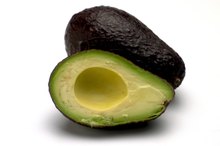What does fact checked mean?
At Healthfully, we strive to deliver objective content that is accurate and up-to-date. Our team periodically reviews articles in order to ensure content quality. The sources cited below consist of evidence from peer-reviewed journals, prominent medical organizations, academic associations, and government data.
- MedlinePlus: Vitamin C
- WomensHealth.gov: Folic Acid Fact Sheet
- American Heart Association: Potassium and High Blood Pressure
The information contained on this site is for informational purposes only, and should not be used as a substitute for the advice of a professional health care provider. Please check with the appropriate physician regarding health questions and concerns. Although we strive to deliver accurate and up-to-date information, no guarantee to that effect is made.
Nutrition Facts for an Organic Minneola Orange
The hybrid of a grapefruit and mandarin, the organic Minneola orange is juicy and tart, and easy to peel with only a few seeds. The organic Minneola has a top shaped like a bell and is also known as a honeybell. Like other oranges, the Minneola is an excellent source of vitamin C and folate, and is also a good source of potassium and fiber, making it a healthy addition to your diet.
Tips
Organic Minneola Orange has 154 Calories and 2.56 g of Protein per 100 gram serving according to the nutrition facts provided by the USDA Food Composition Database.
Calorie Content
One 109 gram organic Minneola orange contains just 70 calories. On a 2,000 calorie diet, this one orange meets less than 5 percent of your daily calorie needs.
Carbs and Natural Sugar
Naval Oranges Nutrition
Learn More
Most of the calories in the orange come from its carbohydrate content. One orange contains 13 grams of total carbohydrate with 9 of those grams coming from sugar. While most of the carbohydrates in the organic Minneola orange come from sugar, it does not have the same effect on your body as table sugar. Fructose, which is the sugar in the orange, is broken down in your liver and does not stimulate the release of insulin, while white sugar begins digesting in the stomach and requires insulin to move the sugar into your cells.
- Most of the calories in the orange come from its carbohydrate content.
- While most of the carbohydrates in the organic Minneola orange come from sugar, it does not have the same effect on your body as table sugar.
Fiber in the Minneola
An organic Minneola orange is low in calories, but with 2 grams of fiber per orange, it may also help control hunger. Fiber delays stomach emptying, which keeps you feeling full longer. It also helps reduce calorie intake, which can help with weight loss.
- An organic Minneola orange is low in calories, but with 2 grams of fiber per orange, it may also help control hunger.
- It also helps reduce calorie intake, which can help with weight loss.
Vitamin C
How to Drink Lemon Water While Pregnant
Learn More
Organic Minneola oranges are high in vitamin C, meeting 100 percent of the daily value. As an antioxidant, vitamin C protects your cells against free radicals and aging. Vitamin C is also needed for the repair and maintenance of bone and tissue and is important for wound healing.
Folate
Folate is an essential B vitamin that helps you make new cells. It is especially important for women of childbearing age because it helps prevent birth defects such as spina bifida and anencephaly. Women need 400 to 800 micrograms of folate a day. Organic Minneola oranges are good sources of folate and can help women meet their daily needs, providing 80 percent of the daily value in one orange.
- Folate is an essential B vitamin that helps you make new cells.
- Organic Minneola oranges are good sources of folate and can help women meet their daily needs, providing 80 percent of the daily value in one orange.
Potassium
Organic Minneola oranges are good sources of potassium with 220 milligrams per serving. Potassium helps improve blood pressure by counteracting the effects of sodium. To keep your blood pressure under control, the American Heart Association recommends you get 4,700 milligrams of potassium a day 5.
- Organic Minneola oranges are good sources of potassium with 220 milligrams per serving.
- To keep your blood pressure under control, the American Heart Association recommends you get 4,700 milligrams of potassium a day 5.
Related Articles
References
- College of Natural and Agricultural Sciences: Citrus Variety Collection: Minneola Tangelo
- Sunkist: Nutrition Facts: Minneola Tangelo
- Today's Dietitian: Taking Control of Hunger — Lessons on Calming Appetite and Managing Weight
- MedlinePlus: Vitamin C
- American Heart Association: Potassium and High Blood Pressure
- Orange Juice. U.S. Department of Agriculture. Published April 1, 2019.
- Hyson DA. A review and critical analysis of the scientific literature related to 100% fruit juice and human health. Adv Nutr. 2015;6(1):37-51. doi:10.3945/an.114.005728
- Glycemic index for 60+ foods. Harvard Health Publishing. Updated March 14, 2018.
- Vitamin C Fact Sheet for Health Professionals. National Institutes of Health Office of Dietary Supplements. Updated July 9, 2019.
- Orange, raw. U.S. Department of Agriculture. Published April 1, 2019.
- Franke SI, Guecheva TN, Henriques JA, Prá D. Orange juice and cancer chemoprevention. Nutr Cancer. 2013;65(7):943-53. doi:10.1080/01635581.2013.817594
- Calcium Fact Sheet for Health Professionals. National Institutes of Health Office of Dietary Supplements. Updated October 16, 2019.
Writer Bio
Jill Corleone is a registered dietitian and health coach who has been writing and lecturing on diet and health for more than 15 years. Her work has been featured on the Huffington Post, Diabetes Self-Management and in the book "Noninvasive Mechanical Ventilation," edited by John R. Bach, M.D. Corleone holds a Bachelor of Science in nutrition.









